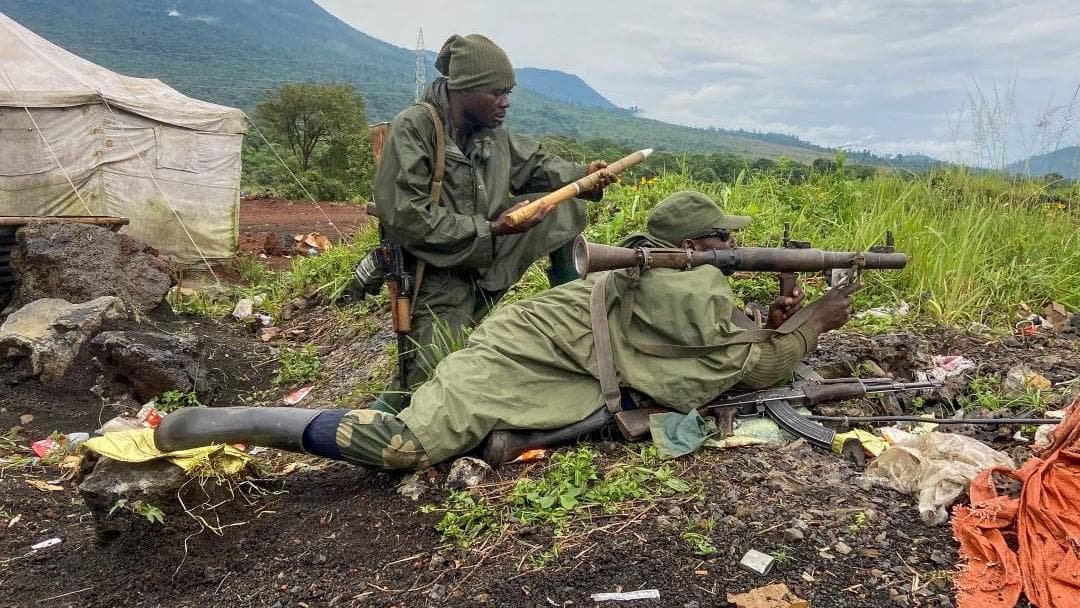YAOUNDÈ, Cameroon – As multiple conflicts once again ravage Africa’s Great Lakes region, Catholic bishops in the Democratic Republic of Congo, Burundi and Rwanda are calling for construction of a metaphorical “City of Peace” based on dialogue and reconciliation.
“In our sub-region, marked by the dark history of genocide and large-scale massacres, we are called to form the ‘City of Peace’, built on mutual acceptance, welcoming people in distress, and facilitating the meeting of hearts, despite differences and disagreements,” said the bishops of the Association of Episcopal Conferences of Central Africa (ACEAC) Jan. 28.
The statement was issued at the close of a four-day meeting of the regional body of bishops in the Archdiocese of Kinshasa, capital of the Democratic Republic of Congo (DRC).
“Recurring crises are weakening the social fabric and threatening ecclesial and social cohesion within our countries and increasingly inter-state relations. Civil wars and massacres have extended to acts of genocide,” the bishops said.
Since the 1960s, the Great Lakes region has seen repeated cycles of violence, resulting in the deaths of millions of people in Burundi, Rwanda, and the DRC. The conflicts are often fueled by a complex intersection of economics, ethnicity, corruption and failed governance, as well as perennial rivalries over power and resources.
The eastern DRC in particular has been a main theatre of conflict. Now one of the deadliest conflicts in human history, violence in the eastern DRC that has persisted for more than thirty years has claimed the lives of at least six million people and has resulted in the eviction of more than 5 million individuals from their homes.
Despite the deployment of international and regional forces to try to stem the violence, various countries, notably the DRC, Uganda, Rwanda and Burundi, not to mention about 120 non-state armed factions, continue to engage in military operations and armed conflict in the area.
Bishop José Moko of Idiofa in Rwanda serves as president of ACEAC, and in presenting the group’s new statement, he responded to charges – including from Congolese President Felix Tshisekedi – that his own country is partly responsible for fomenting the carnage in the eastern DRC.
“The Rwandan bishops are very sensitive to the situation in the east of your country (…) and they will certainly leave Congo with tears in their eyes, with hearts touched, and they will not fail to do their part as pastors of the Church in Rwanda,” he said.
Cardinal Fridolin Ambongo of Kinshasa suggested the political class in all three countries must shoulder a share of the blame.
“I believe that we all long for peace and that there is not a single Catholic bishop in Rwanda, Burundi or the Democratic Republic of the Congo who could be happy about what is happening in the Democratic Republic of the Congo,” he said.
Ambongo condemned political leaders in all three nations for inciting the population “to division and conflict,” accusing them of fostering war in order to draw personal benefits.
In their statement, the ACEAC bishops said “unspeakable” acts of violence should be “warded off with all the energies of faith and reason.”
“We strongly condemn them and invite the various actors, each in their own field, to adhere to the construction of peace. We affirm our solidarity with all the victims of these unjust situations,” the bishops said.
They said the Catholic Church has been working for peace in the conflict-afflicted region for at least a quarter-century, citing an earlier statement by ACEAC from 1999.
“Under the title ‘Stop the Wars,’ our plenary assembly in Nairobi in 1999 declared that ‘peace is the first aspiration of the people of our region. Lasting peace can only be possible when there is dialogue among the sons and daughters of our different countries. This dialogue must aim at sincere reconciliation, founded on justice and forgiveness.’”
In the new statement, the bishops urged Christians to be “pilgrims of peace … called to multiply the initiatives that build bridges between peoples and unite their hearts, so that peace once again becomes a shared dream, the heart of the education of the younger generations, the foundation of society, and one of the major issues of political debate.”
Describing the Church as the guardian of peace, the bishops said each Christian is “an incarnation of peace for himself, his family and his country.”
ACEAC members urged laity to set up “a network of peacemakers that will extend to various socio-professional circles, bringing together ordinary citizens as well as corporate and academic players, right up to senior civil servants.”
“Your Bishops won’t abandon the people of the Great Lakes to their fate,” Moko, 65, said during a press conference in Goma in the east of the DRC.
Turning to governments in the area, the bishops called for equitable sharing of resources, beseeching them to not build dividing walls but uniting bridges, because “the development of millions depends on that.”
“May the God of Goodness help us to combine our efforts to create a sub-regional brotherhood around peace and development,” they said.













